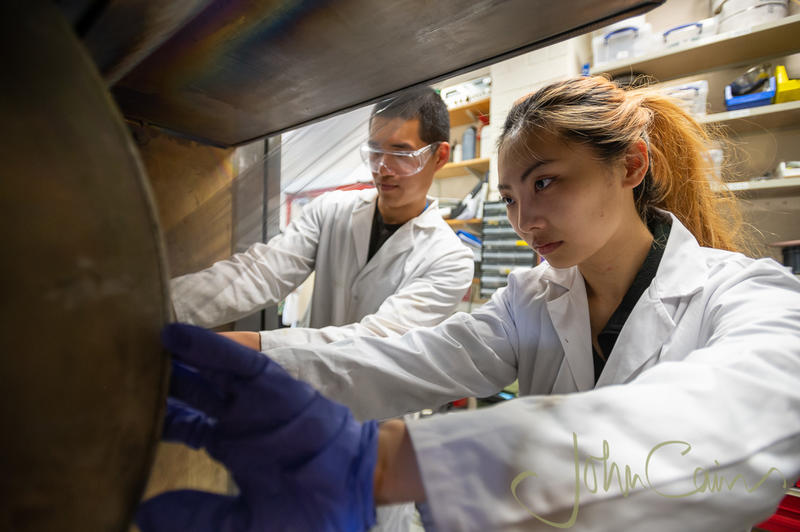Results of Research Excellence Framework 2021 published

Image by John Cairns Photography
Today (12 May 2022), the UK funding bodies have published the results of the UK's most recent national research assessment exercise, the Research Excellence Framework (REF) 2021. Research from the Department of Materials was submitted to Unit of Assessment 12 (UOA12) - Engineering, along with research from the Department of Engineering Science.
In Unit of Assessment 12, 71% of Oxford's submission was judged to be 4* (the highest score available, for research quality that is world-leading in terms of originality, significance and rigour)[1].
Head of Department Professor Hazel Assender welcomed the news saying:
"This is once again a good opportunity to reflect upon the talents, expertise and hard work of our colleagues in terms of research outputs, impacts, and in creating a strong research environment in our departments. We are grateful to those who put in considerable work to deliver the REF submission, and also to all staff and students who have played their part in generating and sustaining a wide-ranging, substantial and vibrant research activity".
Among the highlights of our submission were:
- Our ability to attract, recruit and develop the amazing research students and staff (academic, technical and professional support) from a diverse range of backgrounds that are crucial to delivering and sustaining cutting-edge research. From REF2014 the number of graduate student researchers has grown by ~54% (combined with Engineering and Materials), while we recruited in excess of 80 FTE PDRA roles yearly across the two departments. Thanks to these impressive people the quality of our research has also grown, with 71% of our overall submission given the highest 4* rating compared to 55-60% in REF2014.
- We have expanded our array of specialised, often unique research facilities to expand research capabilities in diverse ways including for example: continued sustainable enhancement of instruments in the David Cockayne Centre for Electron Microscopy, a suite of three atom probe instruments including one dedicated to work on radioactive materials, and facilities synthesis and characterisation of air sensitive materials for battery applications. Engagement with schemes such as the Royce Institute, the National Nuclear User Facility and our partnership with Diamond Light Source for ePSIC provide access routes for external users promoting collaboration.
University of Oxford research submitted to UOA12 has an impact in diverse areas of societal concern, including:
- Transforming the automobile: shaping UK policy and delivering technologies for autonomous and electronic vehicles;
- The energy transition: from 'monopile' foundations reducing cost of offshore wind turbines, to materials for nuclear fusion and advanced batteries;
- Healthcare: organ preservation systems OrganOx metra prolonging liver preservation ahead of transplants, digital therapeutics for management of gestational diabetes GDm-healthTM, Oxevision software for clinical-level heart and breathing rate monitoring;
- Supporting science/evidence lead policy: reports for the European Commission on microplastic pollution, and biodegradable plastics, developing the Oxford PN index underpinning legislation on particulate emissions, and inter-disciplinary work 'The Future of Employment: How susceptible are jobs to computerisation?' shaping policy at governmental levels.
"We are pleased to have submitted work from researchers at a variety of career stages and from across the Collegiate university, thus giving us the opportunity to showcase the depth and breadth of our research. Our submission also shows how through our collaborations with external partners our research is used to benefit society, across the UK and around the world".
Professor Patrick Grant, Pro-Vice Chancellor for Research at the University of Oxford
[1] Largest volume of world-leading research is calculated from the sum of (overall % 4* x submitted FTE) across all submissions
For more information about the REF please visit https://ref.ac.uk/. For more information the University of Oxford REF 2021 results please visit: https://www.ox.ac.uk/research/recognition/REF2021.


